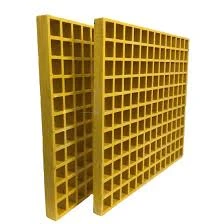
-
 Afrikaans
Afrikaans -
 Albanian
Albanian -
 Amharic
Amharic -
 Arabic
Arabic -
 Armenian
Armenian -
 Azerbaijani
Azerbaijani -
 Basque
Basque -
 Belarusian
Belarusian -
 Bengali
Bengali -
 Bosnian
Bosnian -
 Bulgarian
Bulgarian -
 Catalan
Catalan -
 Cebuano
Cebuano -
 China
China -
 China (Taiwan)
China (Taiwan) -
 Corsican
Corsican -
 Croatian
Croatian -
 Czech
Czech -
 Danish
Danish -
 Dutch
Dutch -
 English
English -
 Esperanto
Esperanto -
 Estonian
Estonian -
 Finnish
Finnish -
 French
French -
 Frisian
Frisian -
 Galician
Galician -
 Georgian
Georgian -
 German
German -
 Greek
Greek -
 Gujarati
Gujarati -
 Haitian Creole
Haitian Creole -
 hausa
hausa -
 hawaiian
hawaiian -
 Hebrew
Hebrew -
 Hindi
Hindi -
 Miao
Miao -
 Hungarian
Hungarian -
 Icelandic
Icelandic -
 igbo
igbo -
 Indonesian
Indonesian -
 irish
irish -
 Italian
Italian -
 Japanese
Japanese -
 Javanese
Javanese -
 Kannada
Kannada -
 kazakh
kazakh -
 Khmer
Khmer -
 Rwandese
Rwandese -
 Korean
Korean -
 Kurdish
Kurdish -
 Kyrgyz
Kyrgyz -
 Lao
Lao -
 Latin
Latin -
 Latvian
Latvian -
 Lithuanian
Lithuanian -
 Luxembourgish
Luxembourgish -
 Macedonian
Macedonian -
 Malgashi
Malgashi -
 Malay
Malay -
 Malayalam
Malayalam -
 Maltese
Maltese -
 Maori
Maori -
 Marathi
Marathi -
 Mongolian
Mongolian -
 Myanmar
Myanmar -
 Nepali
Nepali -
 Norwegian
Norwegian -
 Norwegian
Norwegian -
 Occitan
Occitan -
 Pashto
Pashto -
 Persian
Persian -
 Polish
Polish -
 Portuguese
Portuguese -
 Punjabi
Punjabi -
 Romanian
Romanian -
 Russian
Russian -
 Samoan
Samoan -
 Scottish Gaelic
Scottish Gaelic -
 Serbian
Serbian -
 Sesotho
Sesotho -
 Shona
Shona -
 Sindhi
Sindhi -
 Sinhala
Sinhala -
 Slovak
Slovak -
 Slovenian
Slovenian -
 Somali
Somali -
 Spanish
Spanish -
 Sundanese
Sundanese -
 Swahili
Swahili -
 Swedish
Swedish -
 Tagalog
Tagalog -
 Tajik
Tajik -
 Tamil
Tamil -
 Tatar
Tatar -
 Telugu
Telugu -
 Thai
Thai -
 Turkish
Turkish -
 Turkmen
Turkmen -
 Ukrainian
Ukrainian -
 Urdu
Urdu -
 Uighur
Uighur -
 Uzbek
Uzbek -
 Vietnamese
Vietnamese -
 Welsh
Welsh -
 Bantu
Bantu -
 Yiddish
Yiddish -
 Yoruba
Yoruba -
 Zulu
Zulu
Fiberglass Reinforced Plastic Pipe Applications and Advantages in Modern Construction
The Advantages and Applications of Fiberglass Reinforced Plastic Pipe
Fiberglass Reinforced Plastic (FRP) pipes are an innovative solution in the field of piping systems, combining the benefits of fiberglass and plastic to create a material that is both lightweight and extremely durable. This composite material has gained immense popularity across various industries due to its superior mechanical properties and resistance to corrosion and chemicals. In this article, we will explore the advantages and applications of FRP pipes, highlighting why they have become a preferred choice for many engineering projects.
One of the primary advantages of FRP pipes is their resistance to corrosion. Unlike traditional materials such as steel or concrete, FRP pipes do not rust or corrode when exposed to harsh chemicals or severe environmental conditions. This characteristic is particularly important in industries such as oil and gas, wastewater treatment, and chemical processing, where corrosive substances are prevalent. By utilizing FRP pipes, companies can significantly reduce maintenance costs and extend the lifespan of their piping systems.
The Advantages and Applications of Fiberglass Reinforced Plastic Pipe
FRP pipes also exhibit impressive flexibility and impact resistance. Unlike rigid materials, FRP pipes can accommodate slight ground movements or thermal expansions without breaking or compromising the system’s integrity. This flexibility makes them an ideal choice for regions susceptible to earthquakes or ground shifting. Moreover, their ability to withstand impact means they are less likely to suffer damage from external forces, further increasing their reliability.
fiberglass reinforced plastic pipe

In terms of thermal insulation, FRP pipes are excellent contenders due to their low thermal conductivity. They can maintain the temperature of the fluids flowing through them, making them suitable for hot or cold applications. This insulation property helps in minimizing energy losses and improving overall system efficiency.
The versatility of FRP pipes is noteworthy, as they can be manufactured in various shapes and sizes to meet specific requirements. They can be custom-designed to suit particular installation sites, diameters, and pressure ratings, making them adaptable for a myriad of applications. Common uses include water supply systems, sewage systems, chemical transport, and in the oil and gas industry for transporting crude oil and natural gas.
Another significant advantage of FRP pipes is their environmental sustainability. They are often manufactured using recycled materials and can be recycled at the end of their lifespan. This characteristic aligns well with the growing emphasis on sustainable engineering practices and the reduction of carbon footprints in various industries.
In recent years, the demand for FRP pipes has continued to rise. Industries around the world are increasingly recognizing the benefits of using advanced composite materials over traditional piping systems. With ongoing advancements in manufacturing techniques and material science, the scope and capabilities of FRP technology are constantly expanding.
In conclusion, Fiberglass Reinforced Plastic pipes represent a cutting-edge solution tailored to meet the demands of modern engineering challenges. Their numerous advantages, including corrosion resistance, lightweight design, flexibility, thermal insulation, and sustainability, make them a highly attractive choice across various sectors. As industries seek to improve efficiency, longevity, and environmental sustainability, the adoption of FRP pipes will likely continue to grow, leading to innovations in infrastructure and construction practices worldwide.









